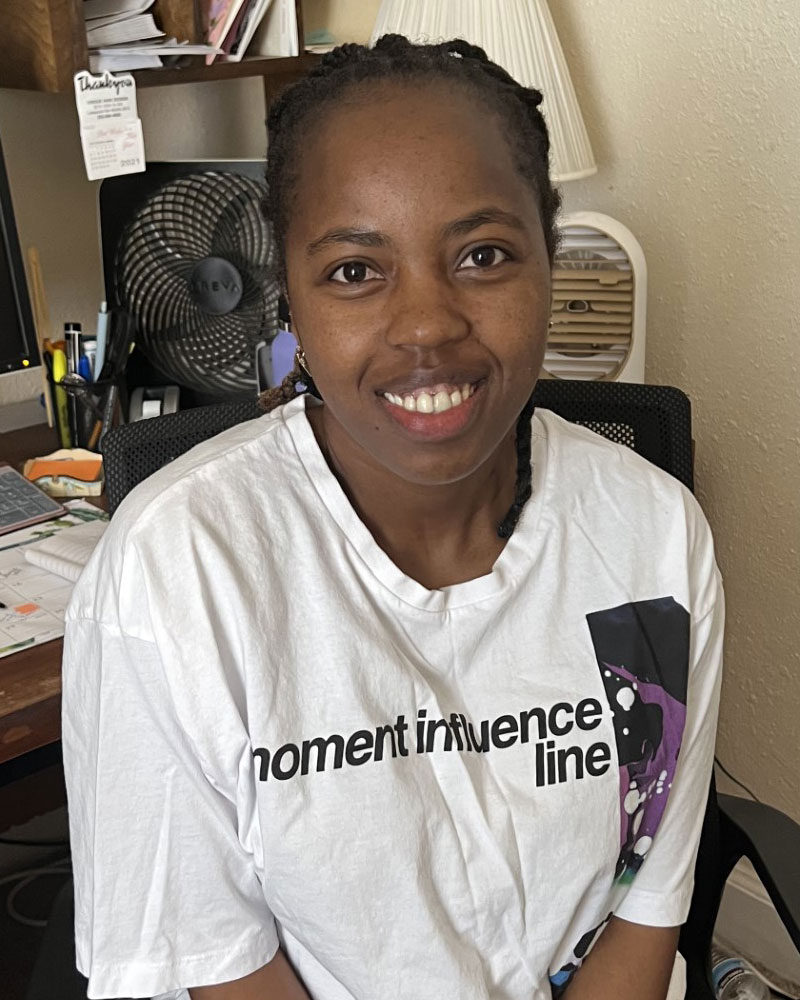Joyce from Kenya
“I am from a Kenyan city of about 200,000 people located 90 km. northwest of the capital Nairobi. Naivasha is mostly a farming town and there is some tourism. My native language is Kikuyu. Swahili is also spoken in Kenya, allowing the 49 different national tribes to communicate. In Naivasha we speak both Kikuyu and Kalenjin, and we all learn English in school because we were colonized by Britain.”
“I left Kenya because I was involved in the August 2022 presidential election; the political party I supported didn’t win. Some people from the party that won made threats against people in my political party. I did not feel safe. So, I went to the US Embassy in Nairobi and got a five-year visitor visa to the US. I was supposed to fly to another US city but landed in Seattle, so I ended up in the detention center. I was in the detention center for eight weeks and then I came to the AIDNW Hospitality House because I don’t have any family here. I don’t even like talking about how I was treated in the detention center. It was “tough, tough, tough” being held there. I did not have any visitors and it was hard on my mental health.”
“I was released by ICE on parole to give me time to prepare my asylum immigration case based on “credible fear”. My immigration hearing will be next year, so more than six months away. I am not nervous for the hearing, because I have nothing but the truth to say, so I don’t think I will have a problem. I applied for asylum so I could work; however, I have to wait the required 150 days to get a work permit. I didn’t expect that my situation could be messed up so much. I have a host family, but they are so far away, and nothing is moving on that.”
“I am very grateful to the AIDNW people. First, when I was released from the detention center, friendly people met me at the motorhome and tents outside the release gate. Since I had no family nor sponsor here, they brought me to the AIDNW Hospitality House. I really like it here at the house, it feels so peaceful. I can grab a bus and go to the library and keep busy. It’s a good place and it has really contributed to improve my mental health. In my free time, I have a phone app called Coursera, so I take free courses to gain skills that will help when I get a work permit.”
“My plan is to stay in the United States. I love the way it rains here in Washington—that’s really fun for me! You know, in Kenya people are suffering the worst drought in 40 years with hardly any rain for the last six years, even in the rainy season. When I get my court hearing done that means I will have freedom to work, freedom to live like any other person in America. I will probably pursue a similar career to the one I had in Kenya.”




